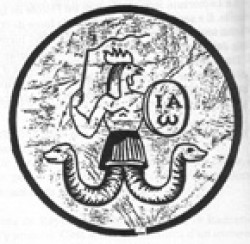Please bear with me as I once again compare a saying from the Gospel of Thomas to a movie ... this time, The Matrix. *

What is meant by "the world" and what is meant by "renunciation"?
To the author of this saying, "the world" is not intrinsically real but is a "corpse", a construct, as it is in The Matrix. It's the interlaced political/economic/social framework in which everyone cannot help but find themselves enmeshed. If someone has the finese to become wealthy in such a framework, it's unlikely they'll care to scrutinize it, much less turn away from it.
For one who is wealthy, what does "renunciation" involve? In the gospel of Matthew (19:21), this means selling one's possessions, giving the money to the poor and following Jesus. In the gospel of Thomas, it seems only to be the realization of the unreality of both the framework and the values that lead them to riches.
This sums up, for me, a difference between the canonical gospels and the gospel of Thomas ... Thomas speaks of gaining knowledge but the canonical gospels speak of the deeds that flow from that knowledge.
And as we all know from watching The Matrix, facing reality and then putting one's knowledge into actual practice, is difficult but rewarding.
................
* This idea courtesy of Fantastic Planet


 We are reading the
We are reading the  Mystery religion (and Gnosticism) is older than Christianity. They
Mystery religion (and Gnosticism) is older than Christianity. They 



